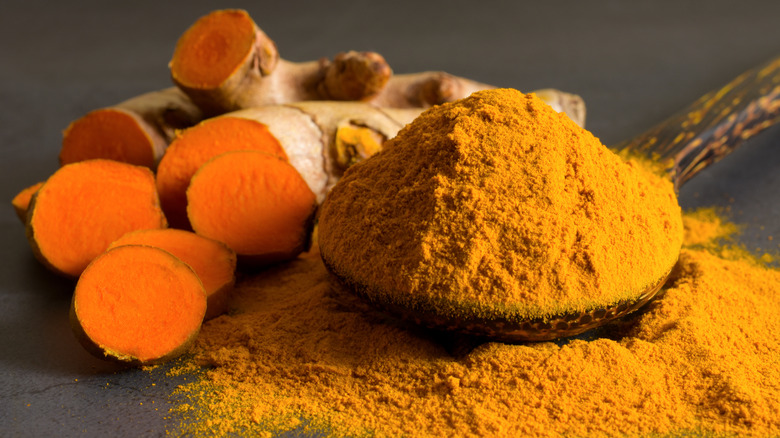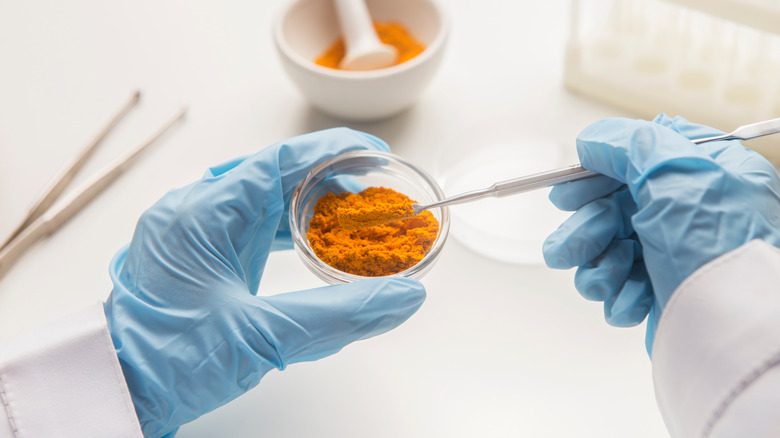Can Turmeric Help With Inflammation?
Inflammation plays a significant role in the development of chronic illness, disease, and premature aging. However, science is turning its attention to curcumin's role in inflammatory disease states. Curcumin is the yellow pigmented polyphenol extracted from turmeric, and studies show that curcumin may not only reduce inflammatory responses in the body, but it can actually prevent them from starting in the first place, via Nutrients. And it's not merely one body system that benefits, but several. In fact, curcumin appears to play a role in reducing inflammation of the respiratory system, joints, and digestive system, via Molecules. For respiratory health, curcumin was found to reduce bronchial inflammation in asthma patients; for patients with rheumatoid arthritis, curcumin was found to block the growth of fibroblasts and reduce inflammation of the joints; and for gastrointestinal ailments, curcumin was found to decrease inflammation in the digestive tract, particularly in its ability to inhibit acid-induced colitis in mice.
If that seems like a lot, there's actually more. Because cancer's underlying causes typically stem from oxidative damage and inflammation, scientists are focusing their attention on curcumin's potential to prevent and treat cancer, via Molecules. Researchers are enthusiastic about both the efficacy and safety curcumin may offer for cancer patients. Current therapies can allow cancer to develop drug resistance, and toxicity tends to build in the system over time as treatment with chemotherapy and radiation progresses. However, curcumin shows promise in its ability to maintain a multi-targeted approach to cancer treatment with a low risk of toxicity.
Scientific limitations
While curcumin shows great promise for anti-inflammatory responses in the body, absorption and bioavailability may be limited, via UCLA Health. Clinical trials suggest many of the potential benefits of curcumin can be countered by a lack of absorption, reduced bioavailability, rapid metabolization, and elimination from the body. Therefore, other bioactive compounds taken in conjunction, such as piperine (the natural alkaloid found in black pepper), should be used in order to increase bioavailability and absorption, according to Nutrients. Additionally, researchers suggest that curcumin should be ingested along with lecithin-rich dietary sources such as eggs or vegetable oils in order to increase bioaccessibility. Some evidence even suggests plasma levels of curcumin were 1.4 to 2.1 times higher in women than they were in men, suggesting gender may play a role in bioavailability limitations as well. It should also be noted that human studies of curcumin are limited and short-lived. Some medical professionals suggest more research needs to be done in order for the mechanisms of curcumin to be well understood from a scientific perspective, and to gauge both acute and long-term benefits of this seemingly powerful phytochemical.


